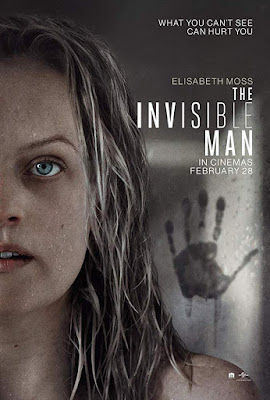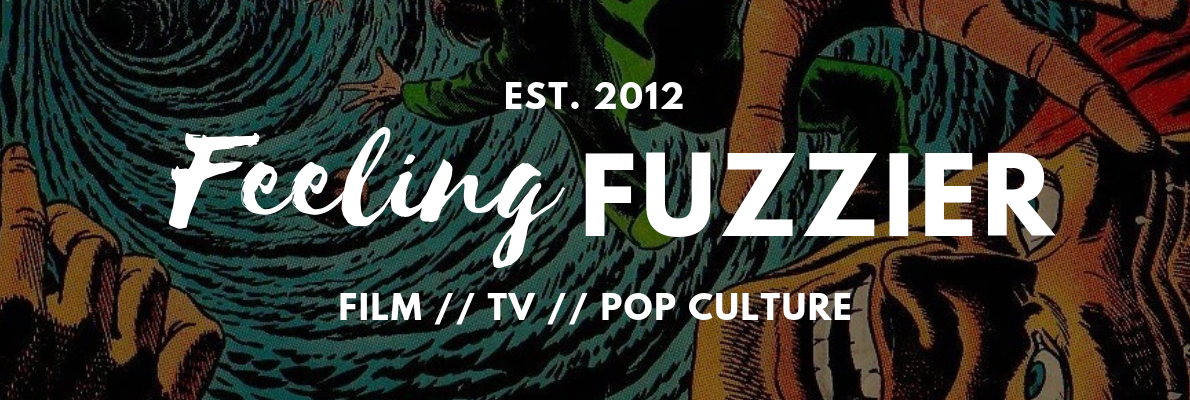Universal has another crack at rebooting one of its classic monster mash movies in Leigh Whannell and Jason Blum's The Invisible Man.
Cecilia Kass (Elisabeth Moss) is trapped in an abusive marriage with talented and celebrated optic scientist Adrian Griffin (Oliver Jackson-Cohen).
Sneaking away from their remote home in the middle of the night, and into the arms of her sister Emily (Harriet Dyer), Cecilia starts afresh by hiding out her friend James' (Aldis Hodge) house.
That's until she learns Adrian has committed suicide, leaving her with a fortune and no reason to stay cooped up at home in fear. However, as Cecilia starts to work on getting her life back, suspicious goings on lead her to believe Adrian might not be dead, but in fact invisible – and hellbent on making her life a misery.
Serving a both writer and director, Australian filmmaker Leigh Whannell's film doesn't fit into a rigid three-act structure, with an extended prologue – which would serve as an effective short film in its own right – and a satisfying epilogue bookending the story. It doesn't feel overlong either, with each section of the film bringing new twists and turns to this terrifying tale.
Hitting each and every beat along the way is Elisabeth Moss (who audiences will recognise from Mad Men, Top of the Lake and The Handmaid's Tale). Stories that centre around or inflict severe trauma are Moss' speciality at this point, and I see why Whannell's contemporary take on this classic character would appeal to an actress like Moss. Strip away all the horror, thriller or genre elements, and Whannell's film is also an effective story about abuse and trauma, not just some cheap Saturday matinee with cackling mad scientists or magic potions.
In keeping with the headlines, Whannell has given The Invisible Man a 'Me Too' spin, with a story that examines domestic violence, emotional abuse and gaslighting. Having escaped from her abuser, Cecilia is lulled into a false sense of security. It's only when strange occurrences start to creep into her life – like creaking floorboards in the night and important documents that go missing – that she starts to suspect that Adrian isn't as dead as authorities have made him out to be.
Moss' character is forced to cover the entire emotional spectrum in this film, from fragility and fear to madness and mirth. As the peculiar turns into the downright scary, Cecilia starts to lose her grip on sanity. Moss captures Cecilia's unravelling state of mind; of course, as she starts to babble about seeing 'invisible men' lurking the shadows, those around her start to mistrust her. After all, they have no reason to believe Adrian would do this to his wife; so it must be the woman who is acting irrationally and unreasonably, right?
Putting Cecilia at the centre of the story is what elevates The Invisible Man from a humdrum reboot up to a polished reimagining; Whannell hasn't just revived this classic character, he's reshaped the myth into something that couldn't be more pertinent and potent. The scares are cleverly constructed too, with Whannell aping David Fincher's cool and smooth camerawork to give everything a cold, clinical feel – an element which marries up with the production design in Adrian's cliffside mansion and tech-filled laboratory.
 Shots are smartly framed with space for 'Adrian' to stand, only we the audience aren't told he's actually there – it's just our imagination filling in the blanks. Even though we know we won't see anything, we race to scan the entire screen in the hope that we might catch a glimpse of something. The score from Benjamin Wallfisch relies a little too heavily on moments of intense scuzzy noise to jolt the audience, but it's effective nonetheless.
Shots are smartly framed with space for 'Adrian' to stand, only we the audience aren't told he's actually there – it's just our imagination filling in the blanks. Even though we know we won't see anything, we race to scan the entire screen in the hope that we might catch a glimpse of something. The score from Benjamin Wallfisch relies a little too heavily on moments of intense scuzzy noise to jolt the audience, but it's effective nonetheless.Shot on a shoestring budget for a wide release film (just $7 million), The Invisible Man is living proof that Universal needn't recruit the likes of Tom Cruise, Russell Crowe and Johnny Depp for a smart, compelling universe of 'gods and monsters'. While The Mummy tried to run before it could walk, and had a budget the size of Bournemouth to accompany grand plans but no substance, The Invisible Man is a mix of both smarts and scares.
The Verdict: 8/10
A clever update on an HG Wells classic, The Invisible Man is well worth a look. Moss shines but it's Whannell who asserts himself as one of the best low-budget genre filmmakers working today.
The Invisible Man is in cinemas across Australia now.



No comments:
Post a Comment